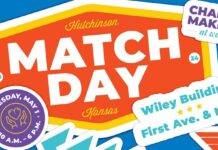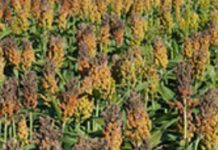From the Office of Public Affairs | http://www.news.ku.edu
Headlines
Study shows whistleblower programs marred by cronyism, mismanagement, secrecy
LAWRENCE — According to a new study from the University of Kansas, government programs that pay “bounties” to whistleblowers who come forward have, themselves, been hampered by mismanagement, cronyism and abuse. “These are extremely secretive programs,” said Alexander Platt, associate professor of law. “The agencies have to preserve anonymity for whistleblowers, many of whom still work for companies they’re reporting on. The problem is, the agencies have invoked this justification as an excuse to also hide embarrassing or controversial information about the programs’ operations.”
Kansas Geological Survey honors outstanding students
LAWRENCE — Four University of Kansas students have received outstanding achievement awards from the Kansas Geological Survey, based in KU’s West District. The recipients were presented cash awards and certificates. The Kansas Geological Survey studies and provides information about the state’s geologic resources and hazards, including groundwater, oil and natural gas, rocks and minerals, and earthquakes.
Authors criticize how communications is taught
LAWRENCE – Asking basic questions about her field of study and teaching has led Meggie Mapes, assistant specialist and introductory course director for the University of Kansas Department of Communication Studies, to oppose “punitive” approaches to teaching and instead to favor an “emancipatory” method of education that takes student input deeply into account.
Full stories below.
————————————————————————
Contact: Mike Krings, 785-864-8860, [email protected]
Study shows whistleblower programs marred by cronyism, mismanagement, secrecy
LAWRENCE — The federal government is relying more than ever on whistleblowers to sniff out corporate fraud and misconduct. According to a new study from the University of Kansas, the government programs that pay “bounties” to whistleblowers who come forward have, themselves, been hampered by mismanagement, cronyism and abuse.
Alexander Platt, associate professor of law, spent the better part of two years battling the Securities and Exchange Commission and Commodity Futures Trading Commission over a series of Freedom of Information Act requests for information about the whistleblower programs. When he finally prevailed, he quickly saw what the agencies might have been trying to cover up. Among other findings presented in his study, Platt shows that the CFTC has awarded nearly two-thirds of all money to tipsters represented by a single law firm and the SEC had disproportionately favored tipsters represented by former SEC officials.
“These are extremely secretive programs,” Platt said. “The agencies have to preserve anonymity for whistleblowers, many of whom still work for companies they’re reporting on. The problem is, the agencies have invoked this justification as an excuse to also hide embarrassing or controversial information about the programs’ operations.”
A summary of Platt’s findings was recently published on the Columbia Law School Blue Sky Blog. The full study, entitled “The Whistleblower Industrial Complex,” is available on SSRN.
Since Congress created the whistleblower programs in the wake of the financial crisis of 2008, a defining challenge for the agencies administering them has been triaging the avalanche of tips coming in the door. In 2021, for instance, the SEC received nearly 50 tips every workday while employing just a few dozen staffers to sift through them.
Platt argues that the agencies have solved this mismatch by effectively outsourcing the tip-triage function to the private whistleblower bar – especially the concentrated group of well-connected, repeat player lawyers whom, he found, have been dominating both programs.
“Private lawyers have likely extracted hundreds of millions of dollars in fees and expenses from these programs,” Platt wrote, adding that “Unlike traditional plaintiffs’ side securities attorneys and attorneys who represent clients seeking government payments in many other contexts, private whistleblower lawyers operate free from virtually all public accountability, transparency or regulation.”
Platt pays particular attention to the role of the revolving door. About one-quarter of dollars awarded by the SEC have gone to clients of lawyers who formerly worked for the agency. Platt estimates that means as much as $70 million has been paid by the SEC to its own alumni.
“It’s a very small number of lawyers who show up again and again, representing clients who get pay outs,” Platt said.
Platt warns that these important government programs may have been captured by this concentrated group of attorneys, and he makes recommendations to ensure that these programs are operating in the public interest. Expanded transparency and oversight of the private attorneys could ensure a more sustainable, accountable and efficient whistleblower program, he wrote.
“If good cases are being left out, that means the program isn’t working. Would these programs prevent another Madoff scheme today? We don’t know,” Platt said. “Today, whistleblower programs are a bit of a free-for-all when it comes to the attorneys involved. That’s a policy choice that was made at the outset of these programs. Ten years in, I think it’s time to tighten the reins a bit. These are good programs that could be, and should be, better.”
-30-
————————————————————————
The official university Twitter account has changed to @UnivOfKansas.
Refollow @KUNews for KU News Service stories, discoveries and experts.
Tweets by KUnews
————————————————————————
Contact: Annette Delaney, 785-864-2152, [email protected]
Kansas Geological Survey honors outstanding students
LAWRENCE — Four University of Kansas students have received outstanding achievement awards from the Kansas Geological Survey (KGS), based in KU’s West District. The recipients were presented cash awards and certificates.
Madison Rice, a junior in microbiology and anthropology from Bixby, Oklahoma, received the William W. Hambleton Student Research Award, named for the director of the KGS from 1970 to 1986.
Working with the KGS forensic and archaeology geophysics program, Rice used ground-penetrating radar to map sections of Valencia Cemetery in Shawnee County and Alma Cemetery in Wabaunsee County that contain unmarked graves. Her work can be used to identify the presence of burial sites and provide information about the types of burial, such as whether the individual was interred in a wood or metal coffin, a burial vault or neither.
Rice presented the results of her work this summer at the International Conference on Ground Penetrating Radar, as well as in 2021 at the American Geophysical Union fall meeting and the Kansas Association of Mappers conference.
Kaela Nerhus is a May 2022 graduate from Fort Dodge, Iowa, who earned a Master of Science in geology. She received the Lee C. and Darcy Gerhard Field Research Student Prize, named for the KGS director from 1987 to 1999 and his wife.
A graduate research assistant in the geohydrology and stratigraphic research programs at the KGS, Nerhus provided field assistance for multiple projects related to the state’s water resources. She assisted drillers in the field as they collected core samples from farmed and unfarmed playas — small, shallow, intermittent wetlands filled by precipitation or runoff — to assess how land use affects recharge rates, or the amount of water that seeps from a playa into the underlying aquifer.
Nerhus assisted drillers with labeling, organizing and transporting core samples back to the KGS and then analyzed the chemical composition of the sediment cores to estimate recharge rates. She also collected samples on the Republican River for a project related to streambank erosion and nutrient loading.
Nerhus’s research addresses issues identified in the Kansas Water Vision and Kansas Water Plan and adds to a body of work that will allow farmers and water resource managers to assess the tradeoff between crop production and groundwater recharge.
Kathryn McClure and Kujtim (Tim) Shaban both received the Norman Plummer Outstanding Student Award, named in honor of a KGS staff member from 1936 to 1969.
McClure, a graduate student in museum studies from Shawnee, began her work at the KGS as an outreach assistant before transitioning to archives assistant. Working with thousands of rock samples from across the country donated to the KGS for use in outreach activities, McClure established a workflow to identify and map the locations of origin of the samples. She cataloged more than 3,000 samples and documented procedures for others to follow to continue the work.
In addition, after finding a trove of unlabeled photos of women who had once worked at the KGS, McClure completed extensive research through archival materials and publications to identify them and their job titles. She then designed and wrote a narrative for a new KGS exhibit to highlight the women and their achievements. The exhibit will be installed on the third floor of Moore Hall.
Shaban, a Kansas City, Missouri, graduate student in environmental geology employed in the KGS Data Resources Library, took the lead in revamping the KGS brine analysis/water chemistry database, which houses data related to water produced from oil and gas wells across the state during petroleum exploration. Researchers use the data to answer questions related to groundwater and surface water quality and conservation and to further the understanding of the state’s mineral resources. Updates to the database will allow new data and new types of data to be entered and retrieved efficiently.
In addition, Shaban organized several years’ worth of donated out-of-state well records and found appropriate homes for them at other state geological surveys or agencies, answered public inquiries, assisted with field work and entered a substantial amount of data into well record databases used by the public and KGS scientific staff. The Data Resources Library houses records for more than 450,000 oil and gas wells and 250,000 water wells.
The Kansas Geological Survey studies and provides information about the state’s geologic resources and hazards, including groundwater, oil and natural gas, rocks and minerals, and earthquakes. It employs approximately 30 students.
— Story by Julie Tollefson
-30-
————————————————————————
Subscribe to KU Today, the campus newsletter,
for additional news about the University of Kansas.
http://www.news.ku.edu
————————————————————————
Contact: Rick Hellman, 785-864-8852, [email protected]
Authors criticize how communications is taught
LAWRENCE – Asking basic questions about her field of study and teaching has led Meggie Mapes, assistant specialist and introductory course director for the University of Kansas Department of Communication Studies, to oppose “punitive” approaches to teaching and instead to favor an “emancipatory” method of education that takes student input deeply into account.
That is the gist of an “agenda-setting theory essay” Mapes co-wrote titled “Against the grain,” first published online April 23 in the journal Communication Education.
Mapes and her co-authors — Lore/tta LeMaster, B. Liahnna Stanley, Angela Labador, Ana Isabel Terminel Iberri, Megan Stephenson and Tyler S. Rife — examined over a century’s worth of writings in the journal (originally called The Quarterly Journal of Speech and then The Speech Teacher) to question the assumptions they found there. In their telling, it’s a damning list: criminalizing Blackness, erasing Indigeneity and working to secure U.S. empire near and far through a compulsory disciplinary focus on U.S.-centrism.
And that’s just for starters.
“Critical communications pedagogy” is just a jumping-off point, the authors write, “to advance what we understand as far more crucial political demands that meet our contemporary political moment: Decolonization of Land, Water, and Body–Mind–Spirit; Abolition of Prisons and Police; and Transnational Solidarity Against U.S. empire.”
Mapes knows it’s a lot to consider for someone who only knows of John Dewey as “one of the most prominent American scholars in the first half of the 20th century.”
“If we want to understand how our discipline came to be, then we need to really look at the first journals that were so important,” Mapes said. “And it’s so reliant on Dewey, who clearly uses language that says ‘Education is about getting rid of the savages.’ So it’s about creating a good citizenry.
“But, of course, that citizenry is supposed to look and act a certain way. And we, in our discipline, have used communication as the vehicle to try to train people, often, to look a certain way, to use professional communication under these conditions.”
The co-authors write that “the Dewey-ian philosophical core has led the discipline to champion nationalist and imperialist discourses and agendas through educative means and under the guise of advancing and securing democracy.”
Following that thread leads Mapes and her co-authors to question all sorts of “settler colonial” assumptions and to argue, instead, for communication education that is emancipatory in outlook.
“We insist,” they write, “on abolishing punitive practices in the classroom that penalize difference and dehumanize students, like attendance, participation, plagiarism software, and other carceral technologies of surveillance. We refuse U.S.-centrism and U.S. English hegemony.”
“This article is asking us to recognize that most of those questions are based in a particular history, and maybe that’s not the only way,” Mapes said. “Maybe that’s not the only route to how education could look.”
Mapes said that, as much as possible, she tries to incorporate the philosophy outlined in the article in her classroom.
“What we say in classrooms really matters,” she said. “When we talk about classrooms as not being of the real world, that’s not fair, because of course classrooms are the real world. How we treat students and model for them in classrooms matters, so they’re not neutral. They are political spaces that we should think of as such.”
-30-
————————————————————————
KU News Service
1450 Jayhawk Blvd.
Lawrence KS 66045
Phone: 785-864-3256
Fax: 785-864-3339
[email protected]
http://www.news.ku.edu
Erinn Barcomb-Peterson, director of news and media relations, [email protected]
Today’s News is a free service from the Office of Public Affairs




